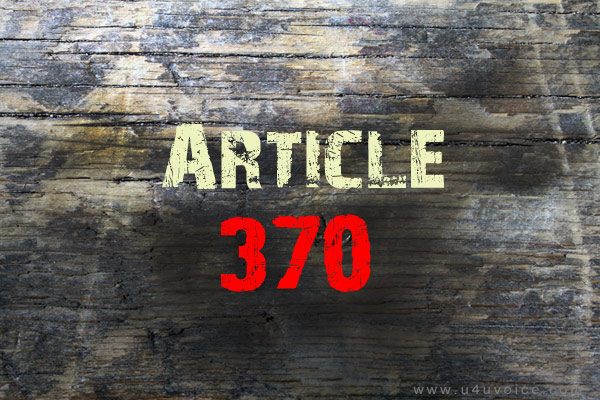In a pivotal legal discourse, the Supreme Court of India delved into the intricate constitutional aspects surrounding the abrogation of Article 370, which conferred special status upon the region of Jammu and Kashmir. Senior advocate Gopal Subramanium, representing petitioner Muzaffar Iqbal Khan, presented his arguments to a five-judge constitution bench led by Chief Justice DY Chandrachud. The session offered insights into the nuanced interpretation of Article 370, its historical context, and its significance in the constitutional landscape.
Subramanium meticulously elaborated that Article 370 was not a reservoir of unbridled authority but rather a conduit through which the Indian Constitution extended to the erstwhile state of Jammu and Kashmir. He emphasized that the Jammu and Kashmir constituent assembly consciously opted to retain Article 370, signifying a deliberate choice for its continuation.
The senior advocate elucidated, “The resolution passed by the Jammu and Kashmir constituent assembly said that the Constitution of India must apply with these modifications. The constitution of Jammu and Kashmir and the Indian Constitution were speaking to each other through Article 370.” He emphasized that the term ‘temporary’ in the marginal notes did not diminish its profound constitutional implications.
Subramanium underscored that Article 370 should not be construed as a political bargaining tool but as a principled compact between the people of India and the people of Jammu and Kashmir, enabling effective communication between their respective constitutions.
Reflecting on the diverse methods of constitutional interpretation, Subramanium highlighted that historical, textual, doctrinal, and structural arguments all converge to affirm the same outcome. The heart of the matter lies in the interpretation of the constitutional provisions.
He vehemently contested the constitutionality of the two orders issued on August 5 and August 6, 2019, by the Centre, which led to the abrogation of Article 370. He contended that these actions effectively annulled the Constitution of Jammu and Kashmir, a move he deemed unauthorized by law.
Subramanium referred to the recent observation by Chief Justice Chandrachud that the will of the people is expressed through established constitutional institutions in representative democracies. He aptly linked this notion to the constituent assembly of Jammu and Kashmir, a recognized institution under the Indian Constitution. The assembly affirmed its intent to preserve Article 370, treating it as a medium of communication between India and the region.
Challenging the unilateral abrogation, Subramanium questioned whether such a decision could be made in disregard of the proactive steps taken by the constituent assembly of Jammu and Kashmir. He emphasized that the Article 370 arrangement embodied a federal compact, defining the federal relationship between the two entities.
The proceedings also touched upon the flexible nature of Article 370, allowing modifications over time. Justice Khanna noted that while the Jammu and Kashmir Constitution might be deemed a distinct entity, its essence was rooted in the Indian Constitution, albeit with specific adaptations.
Gopal Subramanium concluded his argument, paving the way for senior advocate Zafar Shah to present his submission on behalf of the Jammu and Kashmir Bar Association. As the legal debate unfolds, it brings to the forefront the intricacies of constitutional interpretation, history, and the dynamics of federal relationships.
